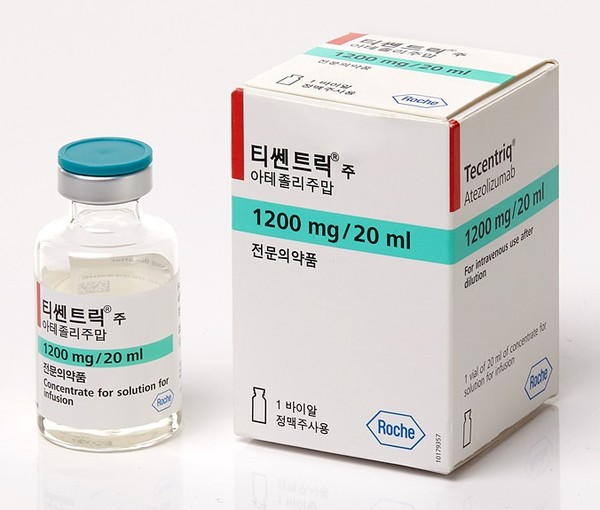Roche Korea has renewed its bid for health insurance coverage of its anti-PD-L1 immuno-oncology drug Tecentriq (atezolizumab) as an adjuvant therapy after surgery for early-stage non-small cell lung cancer (NSCLC).
Industry insiders pay attention to see if Tecentriq, armed with supplemental overall survival (OS) data, will succeed this time around.
According to industry sources, Tecentriq will be tabled at the Health Insurance Review and Assessment Service (HIRA)’s Cancer Disease Review Committee (CDRC) meeting on Wednesday. Roche Korea tried once last year but failed to pass the CDRC.

At the time, the CDRC reportedly asked for more definitive evidence of survival benefit, and Roche has since released additional disease-free survival (DFS) and overall survival (OS) data from the long-term follow-up of the IMpower010 trial, which was the basis for the approval of Tecentriq’s postoperative adjuvant therapy.
According to data presented at the 2024 American Society of Clinical Oncology (ASCO) annual meeting, at five years of follow-up, the Tecentriq postoperative adjuvant therapy demonstrated consistent disease-free survival (DFS) outcomes and positive overall survival (OS) outcomes compared to best supportive care (BSC) in patients with stage 1B-3A NSCLC.
Specifically, in the same nationally licensed indication, "patients with stage 2-3A NSCLC with PD-L1 expression greater than or equal to 50 percent," median DFS was 41.1 months with Tecentriq vs. NE and 41.1 months with BSC, confirming that Tecentriq reduced the risk of disease recurrence or death by 52 percent (HR=0.48; 95 percent CI, 0.32-0.72).
In addition, the three-year DFS rate was 74.9 percent vs. 53.2 percent in the Tecentriq arm and 65.1 percent vs. 44.5 percent in the BSC arm at five years. Median OS was NE in the Tecentriq arm and 87.1 months in the BSC arm (HR = 0.47; 95 percent CI, 0.28-0.77). The three-year OS rate was 89.1 percent vs. 77.8 percent and the five-year rate was 82.7 percent vs. 65.3 percent.
NSCLC accounts for about 85-90 percent of lung cancers, the number one cause of cancer death in the country, and many patients are diagnosed at locally advanced or metastatic stages. About half of patients who undergo complete resection experience recurrence after surgery
However, conventional postoperative adjuvant chemotherapy and radiotherapy have limited effectiveness in some patients, and the side effects are distressing. As a result, there is a need for new treatment options that are more effective and have fewer side effects.
The decision by the CDRC will determine whether coverage will allow more patients to benefit from Tecentriq without financial burden, industry insiders said.

